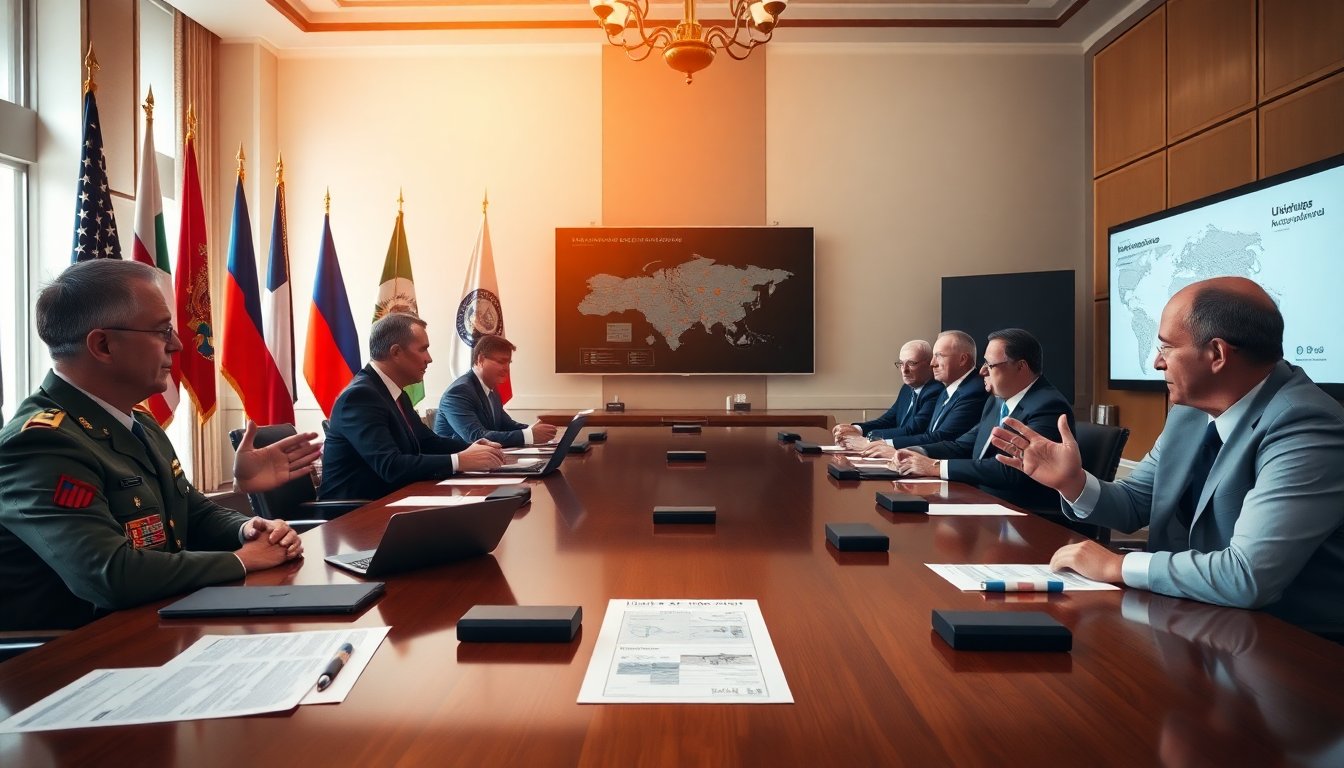Table of Contents
The political landscape surrounding the conflict in Ukraine is evolving, driven by significant diplomatic initiatives from global leaders. A recent meeting in Abu Dhabi involved the U.S. Army secretary and Russian officials. Notably absent were Secretary of State Marco Rubio and other key U.S. negotiators, raising concerns about the potential impact on peace talks.
Significance of the Abu Dhabi meeting
This meeting represents a crucial moment in the ongoing dialogue regarding the Ukraine conflict. The participation of the U.S. Army secretary highlights the military aspects intertwined with diplomatic efforts. As tensions rise, the need for a comprehensive peace plan has never been more urgent.
The role of military diplomacy
Military diplomacy is essential in influencing the outcomes of international conflicts. Recent engagement between the Army secretary and Russian diplomats highlights a strategic effort to tackle challenges arising from the ongoing war. The absence of senior diplomatic figures, such as Secretary Rubio, suggests that the Army secretary’s focus may lean more towards tactical military issues rather than broader political negotiations.
This strategy aims to cultivate a deeper understanding of military tactics and the potential impacts of various peace proposals. Engaging in such discussions could lay the groundwork for future interactions and create opportunities for more formal diplomatic talks.
Absence of key U.S. figures raises questions
The absence of Secretary of State Marco Rubio and other U.S. negotiators from these talks raises significant questions among political analysts. This absence might indicate a strategic choice or a lack of consensus regarding the U.S. position on Ukraine. Such a situation could lead to diverse interpretations by both Russia and the international community.
Potential outcomes of the meeting
As the U.S. Army Secretary engages with Russian officials, the potential outcomes of this meeting are complex. It may provide a crucial opportunity to convey U.S. military priorities directly to Russian counterparts. This direct dialogue could help alleviate misunderstandings and lower the tensions that often arise from miscommunication.
Discussions in Abu Dhabi may provide crucial insights into Russia’s stance on the ongoing conflict and any potential peace plans. Understanding the Russian perspective is vital for developing a balanced approach to the peace process. The involvement of the Army secretary could indicate a shift in the U.S. strategy, potentially leading to agreements that emphasize military aspects.
Looking ahead: The future of Ukraine peace talks
The ongoing discussions in Abu Dhabi mark a pivotal moment for the peace process in Ukraine. This meeting highlights the significance of dialogue in resolving conflicts and the need to integrate military leaders with traditional diplomats. As the situation develops, the insights gained will be essential for shaping future negotiations.
The interplay between military and diplomatic efforts will shape the overall strategy adopted by the U.S. and its allies. The outcomes of this meeting could significantly impact broader peace initiatives and regional stability.
The U.S. Army secretary’s meeting with Russian officials in Abu Dhabi marks a pivotal moment in the quest for peace in Ukraine. The absence of key U.S. negotiators may shift the dynamics of these discussions. However, engaging in dialogue is essential for understanding and potentially resolving the ongoing conflict. As these talks progress, the international community remains vigilant, hoping for a structured resolution that will foster lasting peace in the region.


